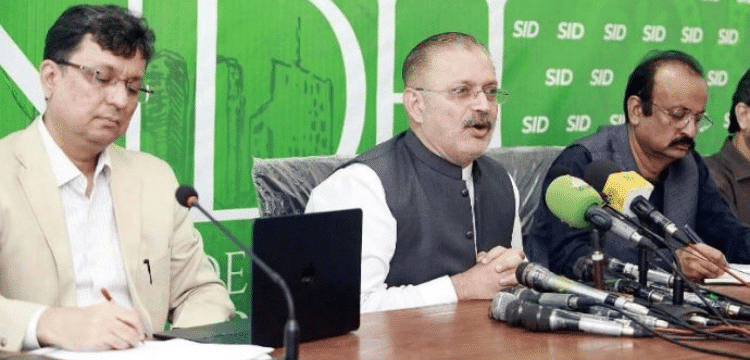Sindh Senior Minister Sharjeel Memon recently unveiled a comprehensive strategy to combat drug abuse, placing significant emphasis on implementing random drug screenings for students across educational institutions.
Commencing on May 10, this initiative forms a crucial component of the province’s broader campaign against the global menace of drug addiction, particularly among the youth.
Memon underscored the gravity of the situation, citing President Asif Zardari’s directive to confront drug abuse head-on. He lauded the collective endeavors of various government entities, including Home Minister Ziaul Hassan, in ongoing anti-drug endeavors.
Furthermore, the senior minister highlighted recent triumphs in apprehending suspects and confiscating substantial quantities of narcotics. He stressed the imperative of handling students who test positive for drugs with utmost confidentiality and vowed stringent actions against drug suppliers.
In a separate announcement, Memon revealed that beginning May 10, the Excise & Taxation Department would initiate actions against unregistered vehicles, potentially leading to their impoundment. He urged vehicle owners to ensure timely registration to evade penalties for overdue tax payments.
Nevertheless, Memon acknowledged hurdles within the narcotics control department, particularly referencing delays in recruitment due to legal impediments. This predicament has fueled frustration among job seekers and hampered the department’s efficacy.
In summary, Sindh’s proactive measures, encompassing drug screenings in educational institutions and crackdowns on unregistered vehicles, epitomize a concerted endeavor to tackle pressing societal issues and safeguard the welfare of its populace.
In a separate announcement, Memon revealed that beginning May 10, the Excise & Taxation Department would initiate actions against unregistered vehicles, potentially leading to their impoundment. He urged vehicle owners to ensure timely registration to evade penalties for overdue tax payments.
Nevertheless, Memon acknowledged hurdles within the narcotics control department, particularly referencing delays in recruitment due to legal impediments. This predicament has fueled frustration among job seekers and hampered the department’s efficacy.
In summary, Sindh’s proactive measures, encompassing drug screenings in educational institutions and crackdowns on unregistered vehicles, epitomize a concerted endeavor to tackle pressing societal issues and safeguard the welfare of its populace.

